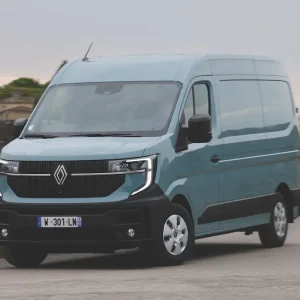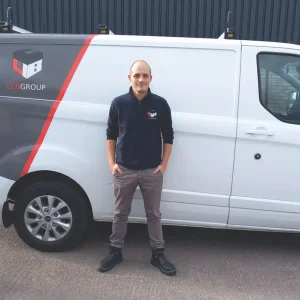The winner of the What Van? Risk Management Award for 2019 believes that the task of managing risks for large fleets of light commercial vehicles has simply become too demanding for any single individual to deal with.
Today’s modern technology means that every LCV in a fleet sends out multiple alerts from myriad devices, and that amounts to too much data to handle.
But help is at hand for fleet managers – SmartWitness claims its SmartGuard platform does all the hard work for them, and it does it 24/7, 365 days a year.
The platform captures, processes and stores high-definition video footage enhanced with telematics data. It is compatible with any device capable of transmitting data – whether existing telematics systems or in-vehicle cameras.
SmartGuard analyses the data generated to create driver scores in order to improve an individual’s on-road behaviour and provide material for the education of employees who have to drive light commercial vehicles for work. The company emphasises that the cloud-based software platform can be checked by fleet managers at any time and from any terminal.
The data received is analysed using complex algorithms to present meaningful management information, which SmartGuard displays via a series of user-friendly dashboards, alerts and reports.
Risk is reduced via qualified driver behaviour analysis, which means better protection for the fleet’s drivers as well as the company brand name. Other benefits of the system are said to be improved driver performance, better fuel efficiency, a reduction of accident-related costs through fewer incidents, lower insurance premiums, improved crisis management, and evidence for intervention against bogus third-party claims.
The firm says its system is fully flexible and scaleable, so that customers can switch the vehicles that have the cover, and increase or decrease the number of vehicles covered quickly.
In a complementary initiative SmartWitness has launched its DDC 100 Driver Distraction Camera, which the company says combats the number one safety hazard on the UK’s roads.
The camera uses infrared imaging and artificial intelligence to detect when a driver is distracted by, for example, using their mobile phone – whether on a call or texting – and can also see if the driver has taken their eyes off the road due to eating or drinking. The device will also alert drivers who are nodding off and can send notifications to fleet managers to provide them with an early warning of potential safety issues.
SmartWitness claims that its insurance partners have informed them that four out of five collisions are a result of drivers being distracted, with fatigue said to be a growing issue due to the massive increase in demand from internet customers for speedy deliveries, a problem that has been exacerbated by driver shortages.
Highly Commended: FORS
Now celebrating its 10th anniversary, the Fleet Operator Recognition Scheme (FORS) is a voluntary accreditation scheme with more than 5,000 members that promotes best practice for commercial vehicle operators.
FORS has excelled in raising best-practice standards through the FORS Standard, which defines requirements for fleet operators to adhere to. FORS members operate beyond the legal minimum.
Requirements include driver licence checks at least every six months using a risk-based verification system that directly accesses the DVLA, and driver eyesight checks to be carried out prior to employment and then every six months, as well as after being involved in a blameworthy collision. Any driver failing an eyesight check is referred to an optician to have their vision tested.
The organisation asks fleet operators to ensure that their drivers meet medical requirements and are not impaired through drink, drugs or fatigue.
Fleet operators must also have a procedure in place that requires their drivers to notify them of any fitness issues that may affect the employee’s entitlement and ability to drive, including physical and mental impairment and the use of prescribed medicine.






